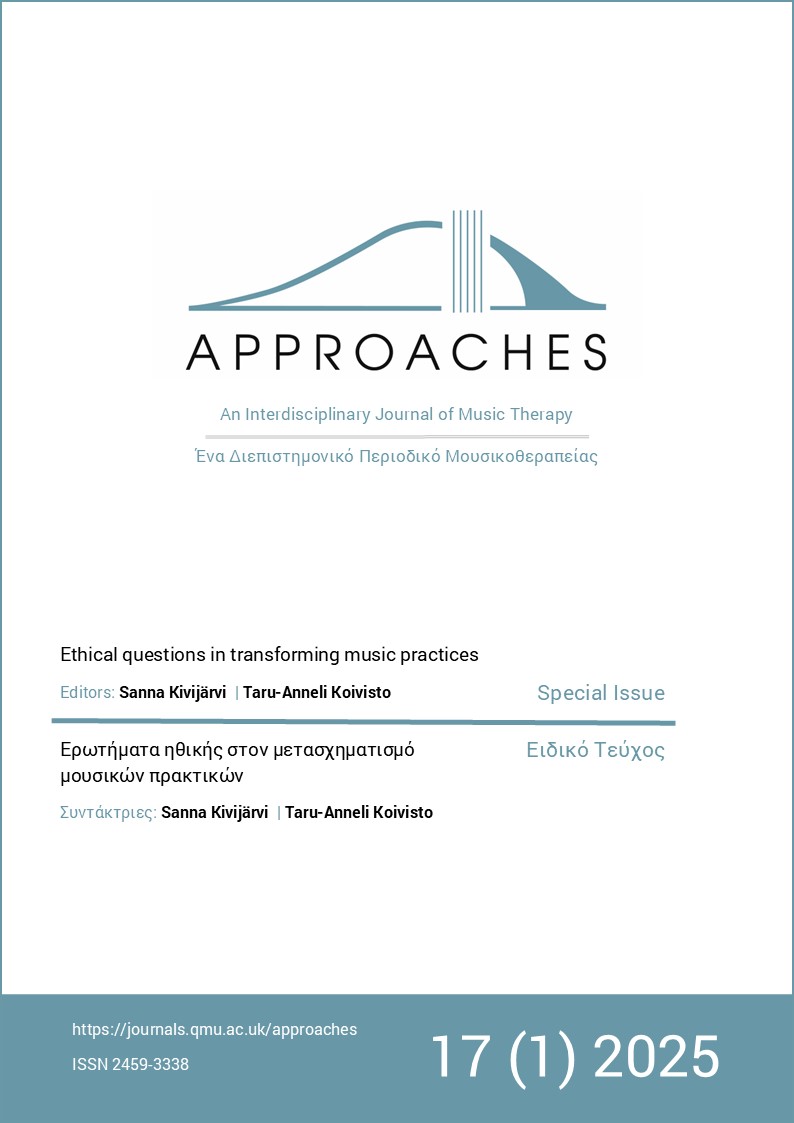The role of pluralism in fostering an ethic of social justice: Policy recommendations for music therapy education and training
DOI:
https://doi.org/10.56883/aijmt.2025.614Keywords:
music therapy education, social pedagogy, critical disability studies, code of ethics, social justice, pluralismAbstract
Recent social justice-focused and anti-oppressive scholarship has called for broader and more intentional inclusion of critical analyses and constructivist epistemological frames to promote equity, diversity, inclusion, accessibility, and decolonisation in music therapy education and training. The recent expansion of social justice content in the revised code of ethics of the Canadian Association of Music Therapists (CAMT) is a step in the right direction. It requires certified music therapists to actively identify, understand, and eliminate implicit biases and discriminatory practices and to cultivate awareness of the harms that have been exacted by oppressive practices within and beyond the profession. We argue, here, that preparing music therapy students to meet professional standards of practice and adhere to the social justice-focused ethical principles articulated in the code of ethics requires Canadian music therapy education programs to intentionally integrate dissension as a key aspect of social justice work throughout their curriculum. In this critical contemplation, we posit that mobilising a commitment to social justice education must first and foremost be grounded in a pluralistic ethos, which values diverse ways of being, thinking, learning and knowing. We then explore the critical integration of lived knowledge, the notions of dignity safety and intellectual insecurity in educational spaces, and arts-based social pedagogies as potentially transformative practices in socially-just music therapy education.
Downloads
Published
Issue
Section
License
Copyright (c) 2025 Annabelle Brault, Cynthia Bruce, Vivek Venkatesh

This work is licensed under a Creative Commons Attribution-NonCommercial-NoDerivatives 4.0 International License.




